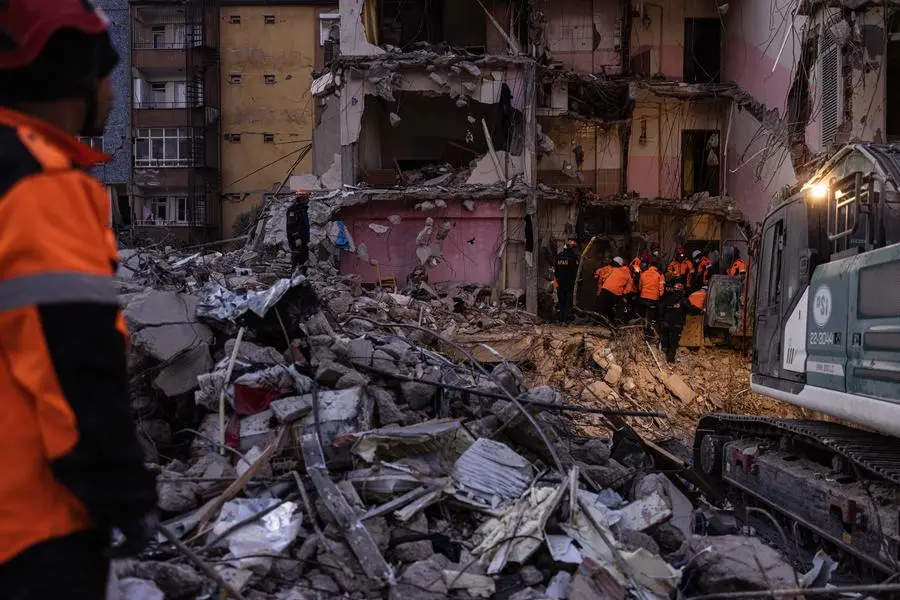PHOTO
The world failed to act quickly enough to rush life-saving aid to Syrians in desperate need following the devastating earthquake, United Nations investigators said Monday.
The quake response was characterised by failures by the government, other factions in the civil war, the international community and the UN itself, which hindered the delivery of urgent assistance to the quake-hit northwest, the UN Commission of Inquiry on Syria said.
They failed to secure an immediate pause in hostilities, or to facilitate life-saving aid through any available route, including for rescue teams in the crucial first week following the February 6 quake, the commission said.
The independent three-member panel, set up to investigate and record all violations of international law since March 2011 in the country, said they were now probing fresh attacks since the February 6 quake -- attacks they branded incomprehensible.
"Syrians felt abandoned and neglected by those supposed to protect them, in the most desperate of times. Many voices are rightly calling for an investigation and for accountability," the panel said in a statement.
President Bashar al-Assad's government took a week to consent to cross-border aid access, said the commission.
Almost 6,000 people were killed in Syria by the 7.8-magnitude tremor that struck the country and neighbouring Turkey.
The UN estimates that five million people need basic shelter and non-food assistance in the quake-hit part of Syria.
- 15.3 million need aid -
"Though there were many acts of heroism amid the suffering, we also witnessed a wholesale failure by the government and the international community, including the UN, to rapidly direct life-saving support to Syrians in the most dire need," said commission chair Paulo Pinheiro.
"Syrians now need a comprehensive ceasefire that is fully respected, for civilians -- including aid workers -- to be safe. Incomprehensibly, due to the cruelty and cynicism of parties to the conflict, we are now investigating fresh attacks even in the very areas devastated by the earthquakes," he added.
The Syrian conflict started in 2011 with Assad's brutal repression of peaceful protests, and escalated to pull in multiple foreign powers and global jihadists.
Nearly half a million people have been killed, and the conflict has forced around half of Syria's pre-war population from their homes.
The commission issued its latest report Monday, covering violations committed in the second half of 2022.
"More than 13 million people are displaced or refugees at a time when 90 percent of all Syrian civilians live in poverty, and 15.3 million are estimated to require humanitarian assistance to survive -- the highest level of people in need since the start of the conflict," the report said.
The report will be presented to the UN Human Rights Council on March 21.





















